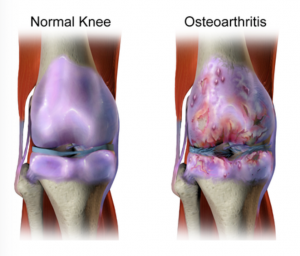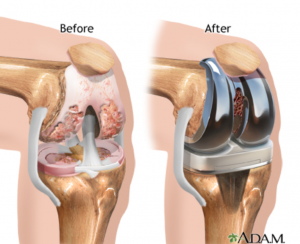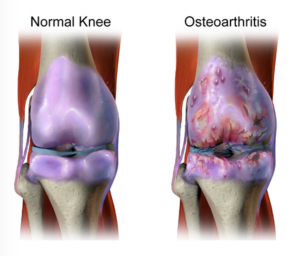Osteoarthritis is a significant contributor to disability in both advanced and emerging nations. As our population continues to age, the incidence of osteoarthritis is on the rise, exerting a substantial societal impact. This very trend underscores why osteoarthritis, alongside conditions like osteoporosis, rheumatoid arthritis, back pain, and musculoskeletal trauma, has been chosen as a primary area of emphasis within the global initiative. Many people in the United States prefer getting knee replacement surgery due to limited mobility, severe pain, and even reasons causing disability. Some of the main reasons include arthritis, obesity, and diabetes. According to the National Institutes of Health, around 4 million people in the United States of America have knee replacements. This is roughly 4.2% of the adult population older than 50 years old. Although it may not seem like a lot of people, there are about 800,000 knee replacement surgeries performed yearly in the United States alone.

For the people that don’t get these surgeries, it can lead to completely losing mobility and function in your knees and joints, and most commonly, lots of pain. Damaged knees can also end up leading to damaged hips, which could cause more issues to the body. Another large factor of knee surgeries is the development of knee osteoarthritis, which is when the cartilage in your knees slowly begins to weaken and deteriorate over time. This can end up affecting how you function in your daily life completely with actions including walking, climbing stairs, or even simple actions like lying down. Although it can be threatening, it can be prevented with the help of getting surgery from medical professionals, and also taking medications and supplements.
According to the Cleveland Clinic, arthritis is the most common cause of people getting knee replacement surgery. Osteoarthritis is the most well-known reason, but people with rheumatoid arthritis could possibly also need this surgery. Many people also get the surgery out of just having stiffness within their joints around their knees and having difficultly moving (mobility) their knees.
Knee replacement surgery is one of the most common surgeries that women over the age of 70 undergo in India. Due to this common issue, India’s Prime Minister, Shri Narendra Modiji, made the decision to cap the price point for surgeries to make it more affordable. For a large chunk of the Indian population, getting this surgery was not financially within reach. This would be the second time that Modiji has stepped up and capped the pricing of medical procedures.
For Modiji to reduce the cost of these important surgeries, he is changing many lives, and making more possibilities. He is one great example of how people can change the world with inclusivity and accessibility. He also called these prices “unjustified, unreasonable, and irrational” when referring to the margins of prosthetic knees to the capping point. Soon after, the National Pharmaceutical Pricing Authority (NPPA), officially capped the pricing point of the surgeries, and capped them out at 59-69% of the original price point.
There are many studies that show that after people get this surgery, their lives improve significantly, and they have less on their plate. For India, this is very much the case, because many people do not have the proper living environment or a sufficient income to cover the costs of the knee replacement procedure. Because Modiji was able to cap the prices, he greatly helped many people in India that may have needed financial assistance in these situations.

Getting knee replacement surgery really improves the lives of many immobile people who have to endure pain through their daily life. Before the surgery, they could find themselves unable to move out of certain positions, or not even be able to sit down the same way that many of us do. By making one change to their life, a difference can be made to so many more, and with a mindset like this, we could help so many people around the world.
































